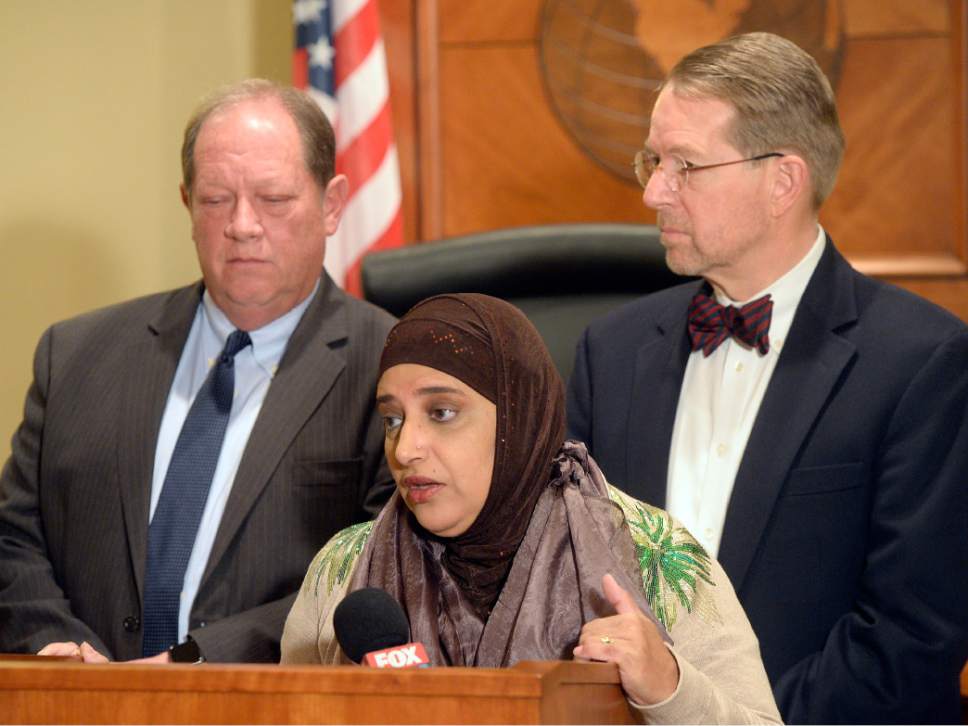This is an archived article that was published on sltrib.com in 2016, and information in the article may be outdated. It is provided only for personal research purposes and may not be reprinted.
People who have been saddened or offended by the divisive, xenophobic tone that so much of our public discourse has taken should draw some solace listening to some of what is being said in Utah.
Trial balloons floated from the circle of President-elect Donald Trump have suggested everything from a registry of Muslims to the kind of internment camps that held Americans of Japanese descent during World War II. Incidents of harassment and violence aimed at Muslims and other minority groups are increasing with sickening speed.
In Utah, though, Gov. Gary Herbert and Attorney General Sean Reyes spoke out against the idea of any kind of Muslim registry.
Herbert, who never had any enthusiasm for the Trump campaign, repeated his belief that Utah should welcome refugees. Reyes, a Trump supporter, also condemned the idea that internment was anything other than a shameful blot on America's history.
Then a group of upwards of 50 Utah attorneys announced the creation of what they are calling the Refugee Justice League of Utah. That's a group of lawyers who have volunteered to provide legal assistance to any refugee who is subjected to harassment, violence or any other violation of their legal, civil and human rights.
Even if it is committed by the government. Or by the next president of the United States.
Organizers Jim McConkie and Brad Parker say they have been flooded with messages from lawyers, of all political and ideological persuasions, who want to help.
Both the public officials and the private attorneys who are taking these humane positions note that Utah might be expected to be more welcoming and supportive of refugees and other repressed people because they know that Utah was settled and founded by people who were violently run out of other places where they had lived.
There was a time, though, that such a sentiment, for the same reason, was thought to be common to all Americans. There was a time when we were all at least vaguely aware of the history of America and how it was founded and built by people who had moved here from other places in search of the freedom and security they were denied in their native lands.
Maybe, in other parts of America, that has been forgotten. In Utah, we may be pleased to see, it has not.
Herbert is among the leaders who often calls that The Utah Way. In time, with luck, and with leadership, it will again be The American Way.



